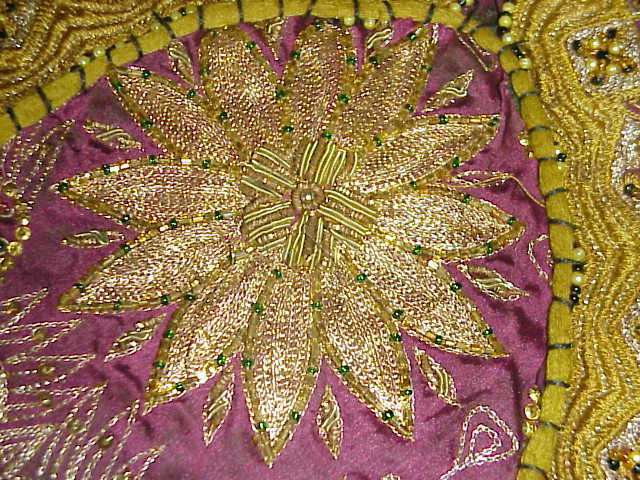===
0106,
4
===

=== |
 |
malnā : 'To rub; to rub down (a horse); to scrub, scour; to furbish; to anoint'. (Platts p.1066)
FWP:
SETS
MOTIFS == GESTURES; ROAD
NAMES
TERMSThe imagery paints such a striking before-and-after picture, and yet gives us not a clue as to the emotional valence of the change. After a lifetime of rolling around in the dust by the roadside like a mad lover, 'anointing' himself with dust, pouring dust on his head in grief and longing, the speaker has made a change. Now he's come to the beloved's street-- and now he's bathed in blood.
Is this an improvement (his old place had inferior washing facilities, while his new one is better equipped)? Or is it simply apples and oranges (dust has its assets and liabilities, and so does blood)? Or is he choosing to move toward greater austerity (he no longer needs to bother with dust, but can simply provide his own blood for his ablutions)? Or might he even be in the process of complaining to the Landlord about the specifics of his living situation?
And in general, how does he feel about his move? Does he feel betrayed (he had expected better things from his change of residence)? Does he feel delighted (the new place is everything he'd been longing for for all those years)? Does he feel resigned (after all, no place is perfect)? Does he feel rueful and a little sarcastic, as SRF suggests? Or is he reporting in a flat, neutral tone that's been (deliberately?) stripped of all emotion?
One reason these questions are so radically unanswerable is that the verse simply reports two 'gestures': 'I spent a lifetime doing X; then I went elsewhere and did Y'. These actions are entirely non-verbal-- not to speak of non-realistic-- so any interpretations we make can only be speculative. Yet how can we avoid making some interpretations, since a whole cloud of them hover constantly over the verse? It's the usual ghazal problem; it's part of the poet's ways of making a tiny verse feel inexhaustible.
Streets in the ghazal world are, as a rule, full of dust. If other streets are 'awash' in dust, might the beloved's street be constantly and inherently 'awash' in blood? It might not be (only) his own blood that the speaker has bathed in.